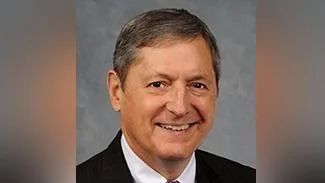David Harris Director the Illinois Department of Revenue | Official Website
David Harris Director the Illinois Department of Revenue | Official Website
DeKalb County has received a tentative property assessment equalization factor of 1.0000 for 2025, according to David Harris, director of the Illinois Department of Revenue (IDOR).
The equalization factor, also known as the "multiplier," is used to ensure uniform property assessments among counties in Illinois. This process is important because many local taxing districts, such as school and fire protection districts, cross county lines. Without this adjustment, there could be inequities among taxpayers who own similar properties.
State law requires that most property in Illinois be assessed at one-third of its market value. Farm homesites and dwellings are assessed using regular procedures, while farmland and farm buildings are valued based on productivity standards.
The multiplier is determined each year by comparing the sales prices of properties over the previous three years with their assessed values. If the average assessment matches one-third of market value, the factor is set at 1.0000. If assessments are higher or lower than this standard, the factor is adjusted accordingly.
"Assessments in DeKalb County are at 33.37% of market value, based on sales of properties in 2022, 2023, and 2024," according to IDOR.
The new tentative multiplier applies to taxes for 2025 payable in 2026. Last year’s multiplier was also set at 1.0000.
According to IDOR, "The tentative factor is subject to change (1) if the County Board of Review takes actions which significantly affect the county assessments, or (2) if local officials or others can present data showing that IDOR's estimates of the average level of assessments in the county should be adjusted." A public hearing will take place between 20 and 30 days after publication of the tentative factor in a local newspaper.
A change in the multiplier does not directly alter total property tax bills. Local taxing bodies determine tax bills when they decide how much money they need for services each year. If their requests do not exceed what was received previously, total property taxes will remain unchanged even if property assessments rise.
"The assessed value of an individual property determines what portion of the tax burden a specific taxpayer will assume," IDOR stated. "That individual's portion of tax responsibility is not changed by the multiplier."





 Alerts Sign-up
Alerts Sign-up